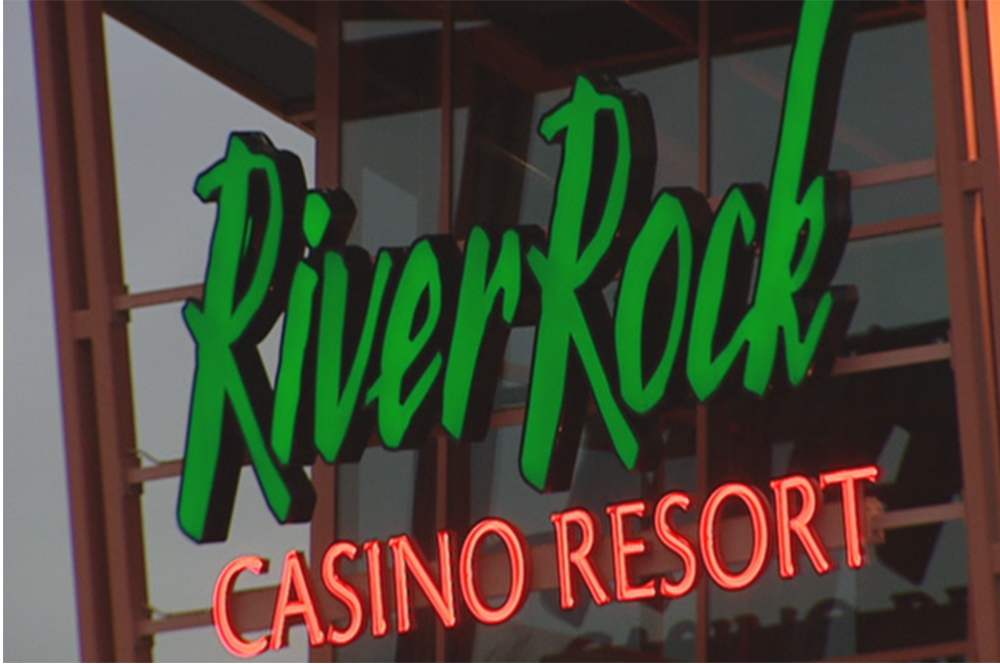A buried 2016 report that flagged potential money laundering at Richmond's River Rock Casino Resort is now attracting the attention of Canada's financial intelligence unit.
Details were only made public this week of the report from an accounting firm's probe of suspicious cash transactions at gaming facilities across the province.
Now FINTRAC—short for the Financial Transactions and Reports Analysis Centre—has said it "is reviewing the report, on which it was not consulted, to determine whether any action on its part is appropriate."
It also said its examination team found 80 per cent of staff interviewed at River Rock "demonstrated limited knowledge of money laundering" in 2016, despite years of concerns.
Canadian casinos are required to report suspicious cash transactions and large cash transactions to FINTRAC. It monitors potential money laundering violations and can impose up to $2 million in fines or up to five years in prison for non-compliance.
'Serious recommendations'
On Sept. 22, B.C.'s new attorney general, David Eby, revealed that a 2016 report into unsourced cash flowing into River Rock Casino made "a series of serious recommendations for reform, which should have been made public at the time the report was complete."
Briefings about the report, Eby said, "caused me to believe our province could do more to combat money laundering at B.C. casinos."
In contrast, the BC Liberal government of the time opted to withhold the release of the report.
The shelved report, conducted by the accounting firm MNP, found approximately $13.5 million in $20 bills were accepted at the River Rock Casino Resort during July 2015.
In the past, police have said $20 bills are the street currency of drug deals.
FINTRAC did not elaborate on what form its review of the previously unreleased findings will take, noting "it cannot comment on its compliance enforcement actions."
'Training was deficient'
It turns out this isn't the first time the federal body has had B.C. casinos and the B.C. Lottery Corporation (BCLC) in its cross-hairs.
Last year, FINTRAC sent a scathing letter to the BCLC, which has only surfaced now with the release of the MNP report and related documents.
"At the River Rock casino, your organization's compliance staff acknowledged that (anti-money laundering) training was deficient", states the letter from Robby Judge, regional compliance manager for FINTRAC.
In addition to the 80 per cent of River Rock staff that demonstrated limited knowledge of money laundering, most were also "(unaware) of suspicious transaction indicators relevant to the casinos sector," Judge wrote.
While he noted no action would be taken against BCLC at that time, he warned "failure to meet all legislative provisions may lead to civil penalties or criminal liabilities."
Penalties must 'sting' casinos, researcher says
Garry Smith, a gambling research specialist with the University of Alberta's Gambling Research institute, said the 2016 report shows little has changed at B.C casinos.
"It's frustrating because gambling isn't being regulated to the extent it should be," Smith said.
He thinks casinos should face tougher penalties when on-site issues are uncovered.
"Nothing much happens to them other than maybe a bit of bad publicity. Like, 'hey, you're responsible for controlling this and if you can't, then you're going to be closed down for a few days.' It's got to sting a little bit for them."
The 2016 MNP report found that at River Rock, "source funds and/or source of wealth information is not gathered for high risk, high volume cash players" and that "River Rock staff have fostered a culture of accepting large bulk cash transactions."
It also took aim at the BCLC, which oversees casinos and gaming in the province.
"BCLC should revise policies regarding tolerance of high risk play and consequences of unacceptable high risk behavior," said MNP.
BCLC 'improving' its money laundering measures
But the B.C. Lottery Corporation insists it is committed to improving its measures against money laundering.
It said it has been moving to non-cash options like bank drafts and electronic fund transfers, and 10s of millions of dollars in cash transactions have been refused under BCLC's program, "including refusing unsourced cash from 150 customers whom have been placed on specific unsourced cash buy-in restrictions."
In total, BCLC said it has banned 276 high-risk people from all provincial gaming sites since 2014.
The B.C. government is expected to appoint an independent expert to review potential money laundering at Metro Vancouver casinos in the next few days.
But Smith is pessimistic the new NDP government will crack down, fearing the flow of money into casinos and then into provincial coffers will prove too tempting.
"It's a total conflict of interest with all Canadian governments because they're the regulator, they're the ones who decide the gambling formats, but they're also the primary beneficiary of it," said Smith.
"So you're basically asked to regulate yourself. And you know, the money usually trumps every other consideration."

